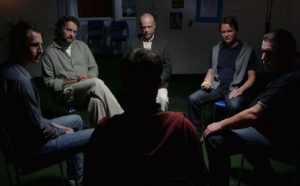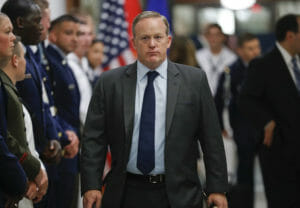Homeland Security Spent $430 Million on Radios Its Employees Don’t Know How to Use
The recent inspector general’s report is the latest in a string of critical assessments DHS has received on its efforts to improve communication among federal, state and local agencies.By Theodoric Meyer, ProPublicaThis story was first published on ProPublica.
Getting the agencies responsible for national security to communicate better was one of the main reasons the Department of Homeland Security was created after the Sept. 11, 2001, terrorist attacks.
But according to a recent report from the department’s inspector general, one aspect of this mission remains far from accomplished.
DHS has spent $430 million over the past nine years to provide radios tuned to a common, secure channel to 123,000 employees across the country. Problem is, no one seems to know how to use them.
Only one of 479 DHS employees surveyed by the inspector general’s office was actually able to use the common channel, according to the report. Most of those surveyed — 72 percent — didn’t even know the common channel existed. Another 25 percent knew the channel existed but weren’t able to find it; 3 percent were able to find an older common channel, but not the current one.
The investigators also found that more than half of the radios did not have the settings for the common channel programmed into them. Only 20 percent of radios tested had all the correct settings.
The radios are supposed to help employees of Customs and Border Patrol, the Transportation Security Administration, the Coast Guard, Immigration and Customs Enforcement, the Federal Emergency Management Agency, the Secret Service, and other agencies with DHS communicate during crises, as well as normal operations.
DHS officials did not immediately respond to questions from ProPublica about what effect the radio problems could have on how the agency handles an emergency.
The $430 million paid for radio infrastructure and maintenance as well as the actual radios.
In a response letter to the report, Jim H. Crumpacker, the Department of Homeland Security’s liaison between the Government Accountability Office and the inspector general, wrote that DHS had made “significant strides” in improving emergency communications since 2003. But he acknowledged that DHS “has had some challenges in achieving Department-wide interoperable communications goals.”
The recent inspector general’s report is the latest in a string of critical assessments DHS has received on its efforts to improve communication between federal, state and local agencies. The Government Accountability Office reported in 2007 that the Department of Homeland Security had “generally not achieved” this goal.
DHS has assigned a blizzard of offices and committees to oversee its radio effort since 2003, which the inspector general’s report claimed had “hindered DHS’ ability to provide effective oversight.”
Also, none of the entities “had the authority to implement and enforce their recommendations,” the report concluded. Tanya Callender, a spokeswoman for the inspector general, said the current office overseeing the effort hadn’t been given the authority to force agencies to use the common channel or even to provide instructions for programming the radios.
The inspector general recommended DHS standardize its policies regarding radios, which DHS agreed to do. But it rejected a second recommendation that it overhaul the office overseeing the radios to give it more authority.
“DHS believes that it has already established a structure with the necessary authority to ensure” that its various agencies can communicate, Crumpacker wrote in his response letter.
Your support matters…Independent journalism is under threat and overshadowed by heavily funded mainstream media.
You can help level the playing field. Become a member.
Your tax-deductible contribution keeps us digging beneath the headlines to give you thought-provoking, investigative reporting and analysis that unearths what's really happening- without compromise.
Give today to support our courageous, independent journalists.




You need to be a supporter to comment.
There are currently no responses to this article.
Be the first to respond.